Back in the immediacy of the populist moment in 2016, there was a brief window when academic, business, media and political elites seemed to recognize that they had drifted too far from ordinary citizens in their societies. Their overwhelming failure to anticipate the Brexit referendum outcome in June 2016 or Donald Trump’s shocking election just over four months later was a powerful sign that transatlantic elites needed to rebuild their civic connections to those in so-called “flyover country.”
In those early days we saw outreach efforts of varying degrees of good faith and sincerity. Journalists travelled to rustbelt districts who had voted for President Trump to better understand the economic and social conditions that precipitated his election. Scholars documented the rising numbers of “deaths of despair” and the employment effects of the so-called “China Shock.” Even Oprah Winfrey recommended people read J.D. Vance’s personal biography about growing up in an Appalachian world of deindustrialization, family breakdown and substance abuse.
These early developments, however, failed to sustain themselves. The exhausting chaos of the Trump presidency, the rise of an uncompromising progressive “resistance” and the illiberal excesses of right-wing populism (including, of course, the Capitol riots in January 2021) put an end to elite pretenses of rebuilding connections between Davos and Dayton.
In recent months, in fact, we’ve witnessed growing calls to marginalize voices that diverge from elite views on matters of culture and politics. Big corporations have generally been at the forefront of these recent efforts and are increasingly using their market power to narrow the terms of political debate. The gatekeepers, in short, have returned to their gates.
While there’s no doubt that various aspects of contemporary populism are unhealthy, unproductive or even worse, the idea that public frustration (as highlighted in a recent article for The Hub) is wholly unjustified risks letting the establishment off the hook. In particular, it fails to reckon with a series of spectacular elite failures over the past quarter century or so which have given ordinary citizens ample reason to question those in authority.
Until modern elites are prepared to be introspective about their shortcomings, acknowledge mistakes, and, in the most egregious cases, accept some consequences, there’s no reason to think that the underlying conditions for political agitation are simply going to disappear. A major lesson of the immediate pre-Trumpian period is that systematically excluding different voices and perspectives doesn’t cause them to go away. There’s a reason why some have described Brexit and Trump’s election as “the revenge of the places [and people] that do not matter.” These political forces will eventually manifest themselves one way or the other.
Notwithstanding their seeming disclination, if transatlantic elites were to actually reckon with previous mistakes, there are four specific twenty-first century failures that are, in my view, central to understanding the current state of public trust and in turn the fecundity of modern populism.
1. The China failure
The decision to admit China to the World Trade Organization at the beginning of the century reflected a broad-based elite consensus that expanding trade and investment flows and promoting economic liberalization with China would not only produce positive economic outcomes but would also contribute to the ultimate goal of the country’s political reform. The underlying assumption was that China would first get rich and then it would become democratic.
The strength and durability of this position is difficult to overstate. There were essentially no mainstream alternatives to the overwhelming view in favour of expanded trade and investment with China for the better part of two decades. It seems rather bizarre in hindsight but there were even smart people writing that growing economic integration between the U.S. and China would lead to the rise of “Chimerica” – a reciprocal political economy relationship that would reshape the modern world.
There was one big problem though: while transatlantic elites assumed there was something probabilistic about the relationship between GDP per capita and democratic reform, Chinese leadership had a different idea. The Communist Party took advantage of the west’s mix of political naivete and economic determinism to reap the benefits of increased integration while doubling down on its now technologically-enabled authoritarian system. The Chinese regime basically discarded its Marxism and kept the Leninism.
The elite failure here isn’t just limited to the lack of progress in China’s political reform either. The economic costs of asymmetrical trade with the communist country have been significant for certain sectors, regions and workers. Canada has not been immune from these costs: one estimate is that heightened import competition from China contributed to the loss of between 150,000 and 170,000 Canadian jobs from 2001 to 2011.
While transatlantic elites assumed there was something probabilistic about the relationship between GDP per capita and democratic reform, Chinese leadership had a different idea
Now, of course, western politicians are starting to realize the threat posted by China’s system of authoritarian capitalism which is increasingly investing tremendous resources in becoming the global leader in strategic technologies with dual commercial and military purposes. We’ve finally awoken to our mistakes and are rushing to correct them including a series of new restrictions on Chinese state-owned enterprises, stronger protections against intellectual property theft, renewed investments in our own domestic capacities, and a general hawkishness vis-à-vis China that seems to extend across the political spectrum.
These steps are good and important, but they’re twenty years too late. Elites were wrong about China and the employment, geopolitical and technological costs have been significant. We’re now having to play catch up.
One final point: If there were any remaining Sinophile holdouts, the COVID-19 pandemic ought to finally have dissuaded them. We now know with a high degree of certainty that the first case of the novel coronavirus occurred in China in late 2019 but Chinese officials suppressed this information from the rest of the world for several weeks and permitted large-scale, daily international travel out of Wuhan province during this period. The result is doubtless more global deaths and greater economic and social costs than might have otherwise been the case. These aren’t the actions of a reliable and trustworthy global partner – in fact, one might provocatively argue that they essentially amount to hostile acts.
2. The Iraq quagmire
Following the devastating terrorist attacks on the World Trade Centre in September 2001, transatlantic elites moved swiftly to conceptualize the western response in as large-scale terms as possible. President George W. Bush’s reproach that “you are either with us or you are with the terrorists” set off a chain of events that led to the global war on terrorism, the so-called “freedom agenda” (which reflected the ambitious goal of widespread democracy promotion) and ultimately the invasion of Iraq.
As a young conservative, I remember being swept up in the Braveheart-like rhetoric of the moment. President Bush’s second inaugural speech, which famously stipulated that “the survival of liberty in our land increasingly depends on the success of liberty in other lands”, captured the unmistakable mix of idealism and hubris of the post-9/11 period.
The subsequent quagmire in Iraq, which has cost trillions of dollars and led to countless deaths, put an end to such idealism. It was a powerful reminder of the failures of intelligence bureaucracies, the population’s limited tolerance for global adventurism, and the faulty presumptions of universalist thinking. Appeals to freedom, liberty, and democracy may have been stirring to the ears of western idealists but they fell mostly flat with many in the region who instead prioritized order, stability, and religious piety. They didn’t want what we proposed to deliver by way of military force.
Revisionist history has laid most of the blame with President Bush and his administration. That is not completely unjustified. But it’s worth remembering that the global war on terror in general and the war in Iraq in particular was a broad-based elite effort that included the likes of current U.S. senate majority leader Chuck Schumer and the then-Democratic presidential frontrunner Hillary Clinton.
There’s a good case Barack Obama wouldn’t have become president if he hadn’t differentiated himself from Hillary Clinton on the war
Although the costs of the Iraq war can be measured in lives lost and fiscal outlays, the most significant impact may be in the form of opportunity costs – namely, nearly a lost decade of U.S. political attention and energy consumed by the failed war effort. It superseded progress on a wide range of issues that continue to bedevil U.S. politics such as (but hardly limited to) the federal deficit and debt and contributed to its current state of toxic polarization. The counterfactuals of how history might have otherwise unfolded are fascinating. There’s a good case, for instance, that Barack Obama wouldn’t have become president if he hadn’t been able to differentiate himself from Hillary Clinton on the war in the 2007-2008 Democratic Party primary.
Canada avoided direct participation in the Iraq war due to the foresight of the Chrétien government for which it deserves full and unequivocal credit. But we were also probably more involved in the war in Afghanistan than we might otherwise have been (including spending a great deal of time in difficult military theatres such as Kandahar province) as a result, and were still indirectly affected through our relationship with the U.S. and its growing isolationism.
3. The global financial crisis
The global financial crisis of 2007-08 was definitionally a major elite failure. A combination of highly-leveraged, complex financial instruments, huge financial disruptions for retail investors and ordinary households, and a fiscal bailout that prioritized bank solvency was the perfect storm to produce a populist backlash. Former Prime Minister Stephen Harper has since described these events as the “spark that lit the powder keg” of contemporary public distrust and political populism.
That western economies had barely recovered from the depths of the global financial crisis before the pandemic-induced recession early last year is evidence of how profound and long lasting its effects have been.
Canada’s mix of conservatism and parochialism provided a hedge against the risk of bank failures
This type of analysis is necessarily overdetermined but one cannot help but think that the current popularity of socialism (which is evident in polls in Canada and elsewhere across the Anglosphere) is also an expression of the ongoing political salience of Wall Street bailouts and Main Street bankruptcies that ultimately flowed from the global financial crisis.
Canada, itself, was spared from the worst of the global recession due to its strict banking regulations and conservative banking culture. Our mix of conservatism and parochialism basically provided a hedge against the risk of domestic bank failures.
But, still, it would be wrong to think that we haven’t been affected by the long-term political ramifications of the financial crisis and the subsequent government bailouts. One might argue that, although the China failure is more fundamental because it contributed to the disruption of the post-Cold War unipolar world, this one has arguably had greater political salience and public awareness.
It’s hard to argue that without the financial crisis, we don’t get Donald Trump or Bernie Sanders. We also probably don’t get the same level of heightened political concerns about income inequality, growing public support for higher taxes for high-income earners, or the current preoccupation with carving up the pie rather growing it.
4. The COVID-19 fiasco
The final elite failure is still unfolding. The COVID-19 fiasco – including confusing (and sometimes incorrect) public communications, a failed testing regime, inconsistent and unpredictable lockdowns, bungled vaccine procurement, and slow vaccine distribution – is no doubt contributing to public frustration and anger in real time. It’s too early to know the long-term consequences for public trust in key institutions including public health expertise.
Although no jurisdictional response to the crisis has been flawless, Canada’s increasingly stands out for its failure. That Ontarians now find themselves subjected to the same stay-at-home orders from more than a year ago is a telling indictment. The Hub’s executive director, Rudyard Griffiths, described the dire situation as a “sorry litany of missed opportunities, botched policies and outright incompetence” earlier this week. Presumably future public inquiries will document the relative role of each.
The key point of these four cases is this: it is both inaccurate and counterproductive to condemn modern populism as somehow an alien movement disconnected from real-life circumstances. Notwithstanding their various flaws, the populists have a point. Contemporary elites have made some big, spectacular mistakes in the twenty-first century that have produced real harm for ordinary people. Owning up to these failures would be a key step in rebuilding public trust.
Instead though the establishment seems to have learned the opposite lesson. They’re refortifying the gates to the public square. Recent history tells us that’s bound to end badly.
Recommended for You
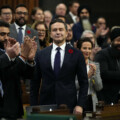
Pierre Poilievre secured a resounding win—here’s why: The Weekly Wrap
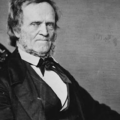
William Lyon Mackenzie is worth the drive, if you can find him
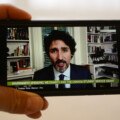
We need thorough ethics investigations, not fulsome ones
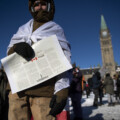
Are conservatives really rights-deniers?
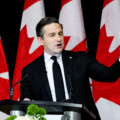
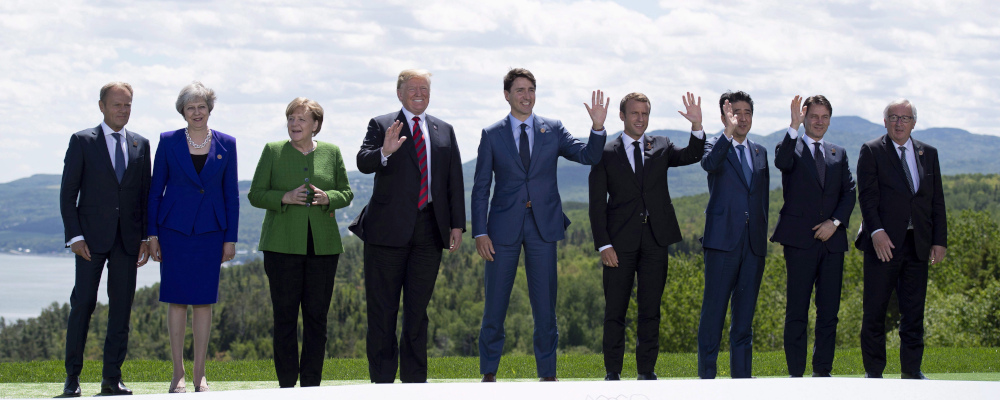

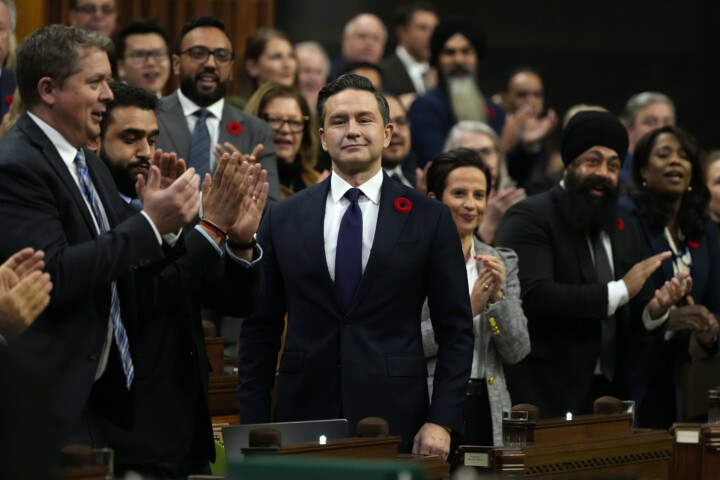

Comments (0)